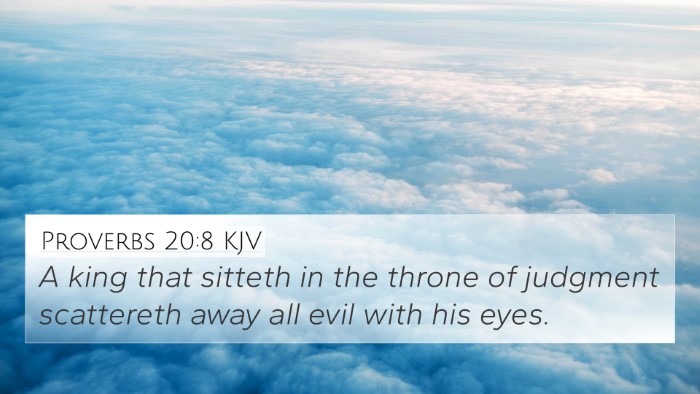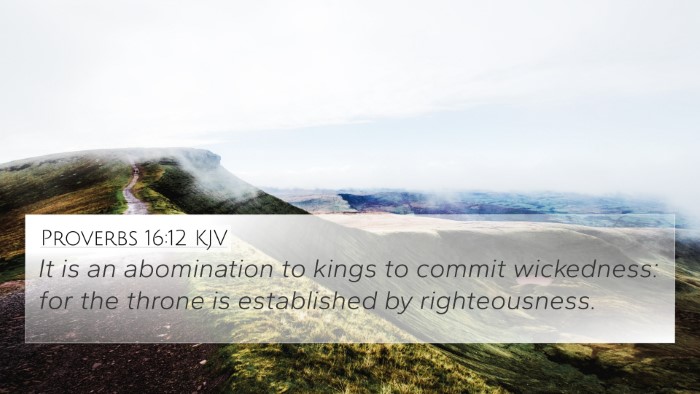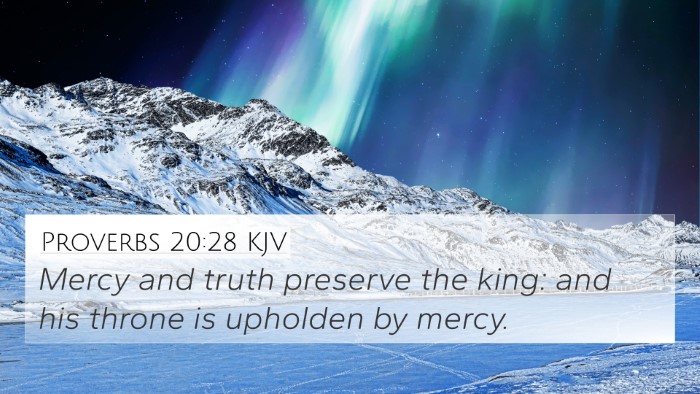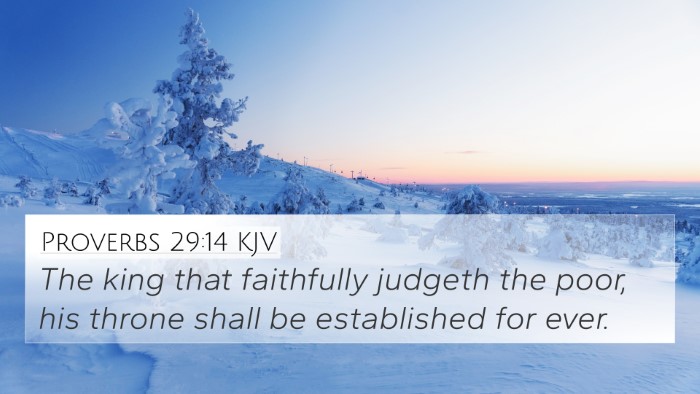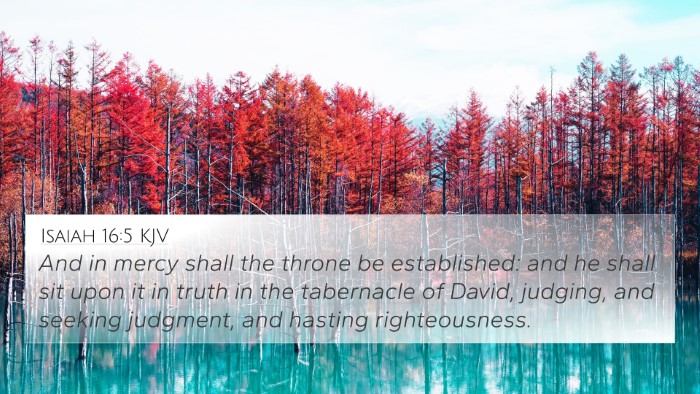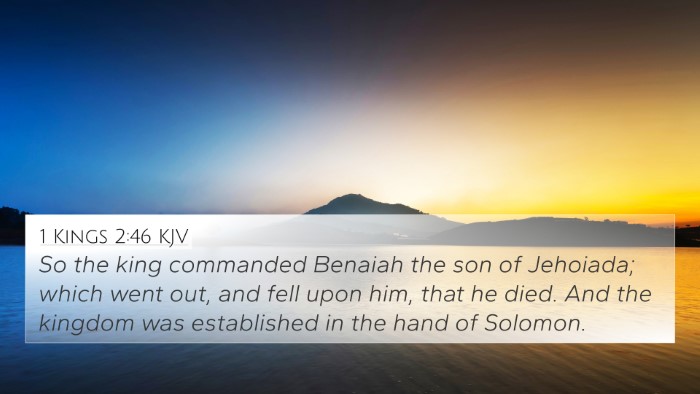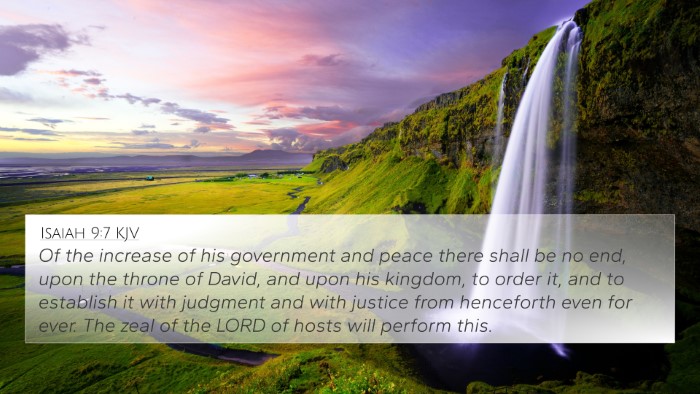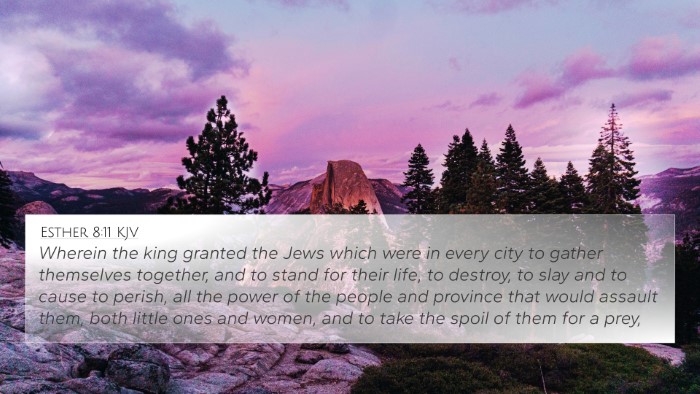Understanding Proverbs 25:5
The verse Proverbs 25:5 states, "Take away the wicked from before the king, and his throne shall be established in righteousness." This verse emphasizes the importance of removing evil influences from authority in order to ensure a just and righteous leadership.
Summary of Meanings
Pubic domain commentaries, such as those by Matthew Henry, Albert Barnes, and Adam Clarke, provide various insights into this verse:
- Matthew Henry: He highlights the necessity of purging society and government of wickedness. Righteous leadership can only thrive when evil is removed from the equation. It shows that good governance is predicated on moral integrity and the absence of corrupt influences.
- Albert Barnes: Barnes reflects on the throne's establishment in righteousness, illustrating that a ruler’s legitimacy and stability greatly depend on their commitment to justice. When moral principles guide leadership, society flourishes.
- Adam Clarke: Clarke emphasizes the need for wise counsel around the king. He notes that removing the wicked not only purifies the court but strengthens the king’s rule, allowing for decisions made in accordance with divine order.
Cross-References
Proverbs 25:5 can be interconnected with several other scriptures, which further elucidate its themes:
- Psalm 101:1-4: This passage expresses a commitment to righteous living and a rejection of wickedness, paralleling the call in Proverbs for a purge of evil influences.
- Proverbs 14:34: Here, it states, "Righteousness exalts a nation, but sin is a reproach to any people." This reinforces the idea that purity in leadership is foundational to societal success.
- Isaiah 1:23: This verse speaks to the leaders who embrace corruption, reminding us that corrupt authority leads to ruin.
- 1 Timothy 2:2: The New Testament encourages prayers for rulers, emphasizing the significance of righteous leadership, thereby linking moral governance across both Testaments.
- Romans 13:1: It underscores the divine establishment of authority which should be upheld by those in power being righteous and just, creating a thematic connection with Proverbs.
- Proverbs 16:12: This warns kings against doing wrong; their throne is established on righteousness, akin to the principle highlighted in Proverbs 25:5.
- Micah 6:8: It emphasizes what the Lord requires: to act justly, love mercy, and walk humbly with God, which aligns with the call for a righteous rule.
Thematic Connections
The verse encourages us to reflect on the following themes:
- Moral Leadership: Leaders are called to be exemplary in conduct and action, as their influence shapes society.
- Purity in Governance: The removal of wickedness is crucial for justice to prevail, highlighting the need for accountability in rulers.
- The Role of Wisdom: Wisdom must govern choices made by leaders; it ensures outcomes that benefit the populace.
Tools for Bible Cross-Referencing
To explore the connections deeper, it would be beneficial to utilize various tools for Bible cross-referencing:
- Bible Concordance: A comprehensive tool that allows you to search for specific words and phrases.
- Bible Cross-Reference Guide: This guide shows correlations between scriptures, enriching your study further.
- Bible Reference Resources: These resources compile extensive references to aid in understanding scripture links.
Application of Cross-Referencing in Study
Using cross-references is essential in Biblical studies. Here are some insights on how to effectively apply this approach:
- Identify repeated themes across different texts to see how they inform the core meaning of verses.
- Explore inter-Biblical dialogues, noting how Old Testament prophetic teachings align with New Testament principles.
- Analyze parallels within the Gospel accounts to discern the cohesive message of Jesus’s teachings.
Conclusion
Proverbs 25:5 serves as a poignant reminder that righteousness is foundational for effective leadership. By using the cross-referencing system, readers can enrich their understanding and grasp the interwoven nature of scripture throughout the Bible. Explore further by identifying connections between verses to deepen your comprehension of divine governance.



